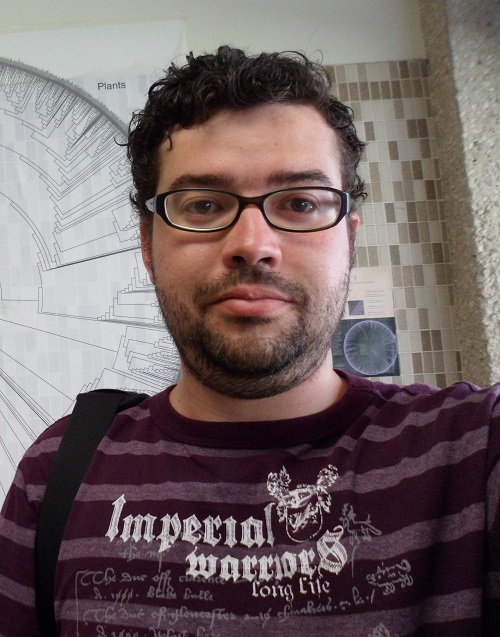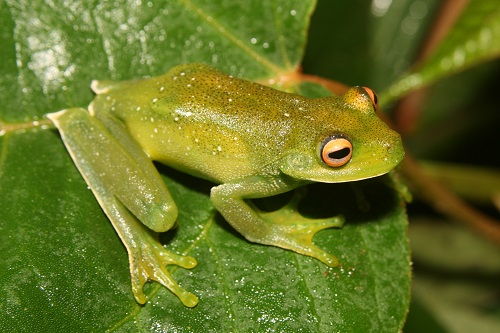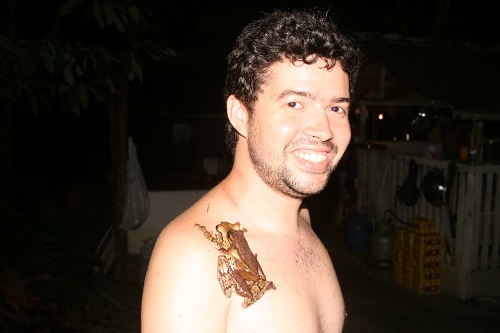About the department: I’m a professor at the Ecology group of our institute. The Federal Univ Mato Grosso do Sul is the largest public university in the state, and the 4th largest in central Brazil (
https://www.ufms.br/en/). We are in a strategic position to conduct biodiversity research, because natural areas of Pantanal (world's largest wetland), Cerrado, and Atlantic Forest are all within a few hours drive.
About the research: In my research program, I’m especially interested in synthesizing metacommunity ecology and micro- and macroevolution. My ultimate goal is to understand how the interaction between microevolutionary processes at the population change trait distribution and scale up to influence patterns at the metacommunity scale. We usually address this question by using phylogenetic comparative methods to analyze life history traits and vertebrates as a model group. Current projects of grad students in the lab involve estimation of macroevolutionary adaptive landscape of tadpoles and bats. Another approach we are starting to explore is to measure traits that are related to dispersal ability and competitive hierarchy of frogs in the field.
What has been the biggest challenge as a new PI so far? We are facing a big shortage of public funding for research in Brazil since 2016. These are tough times and early carreer researchers tend to be more affected by these cuts. This
blog post really summarizes this feeling.
What has been the biggest surprise so far about being a new PI? I received many requests of prospective students to join the lab since I arrived almost two years ago, including PhD students. I really didn't expect that.
How have you prepared to be a PI? I have tried to develop some skills that I think are key to this new position, such as personal organization, mentorship techniques, team management, and project management. So I went on and read a couple of books about these subjects and it helped a lot. But I keep learning every day from my own students. I'm still learning how to deal with international students, for example.
How do you/will you approach mentoring new lab members? We have weekly meetings when all students talk about their projects and also have our own journal club. These actions give students opportunities to talk about the development of their research and also discuss ideas that we could incorporate in further lab projects.
Are you recruiting? If so, how do you/ will you choose new lab members? Yes! I'm always interested in new, enthusiastic PhD and Master's students. We usually agree on a project that at the same time interests students and try to contribute to answer the broad question of my research program. Our only limitation now is the amount of fellowships available in our grad program.
When and why did you become a SSE member? I became a student member of SSE in 2010 when I was transitioning from master's to PhD. I always liked reading papers from the journal
Evolution and at the time I was beginning to be more interested in questions and approaches at the intersection between ecology and evolution.
What does becoming a SSE member mean to you or your career? By being a member of SSE I feel I'm part of the scientific community and can take advantage of the opportunities the society offers to its members, such as small grants and travel awards.
Do you have a funny story to share from an Evolution Meeting? Believe it or not I haven't attended any Evolution meeting, so I still don't have any fun story.
Do you remember your first publication in Evolution or Evolution Letters (acceptance or rejection)? I have still not published any paper in
Evolution. But as the projects in the lab develop, we plan to submit at least two papers from master's students.
If you could meet one other SSE member for the first time, who would it be and why? Jonathan Losos, I really like his approach using Anoles and his papers have always been an inspiration to me and my students.
Besides research, how do you promote science? I try to spread the word about new papers using Twitter in both Portuguese and English. But I'm usually enjoying chatting with kids in schools via
Skype a Scientist. This has been a great experience and I intend to make it more often.
Do you teach evolution? What is the hardest concept to teach? I don't teach an undergrad course in evolution, but I try to always teach community ecology and urban ecology with an evolutionary approach in mind. It's been hard to explain drift to students and how it interacts with other microevolutionary processes to influence trait distribution.
What concept blows students’ minds? In the courses I teach I always talk about contemporary evolution, i.e., changes in the frequency distribution of traits in short time scales. I usually use the long-term experiment with anoles in the Caribbean.
How do you think evolutionary research benefits society? We are always concerned about virus and bacterial infections as a public health problem. Without knowing how the populations of these pathogens evolve we can't design efficient vaccines and antibiotics.
Do you have a time management tip to share? I apply the Getting Things Done (GTD) approach and I can say that it saves my life. I really recommend it.
What is your favorite app? I've been using iNaturalist a lot these days to document wildlife around me.
Do you have a favorite science podcast or blog? Blogs
Dynamic Ecology,
Eco-Evo Evo-Eco; podcasts Pillars of Biodiversity, Major Revisions.
What book should every evolutionary biologist read? All the classics from the New Synthesis, specially "Tempo and Mode in Evolution" by G. G. Simpson.
What one piece of advice would you give to a starting graduate student? Read! Read! Read! Reading is maybe the most important and defining thing as a grad student. Join journal clubs and seminars as much as possible, try to split up your time between courses, research projects, and other activities, but always leaving enough time to read key papers in your area. Ideally develop a routine, such as read one paper a day, no matter what.
What one piece of advice would you give to a postdoc? Enjoy your free time, it will end soon :) Kidding! But my time as a postdoc is something I often miss, because I had more time to write papers and think almost exclusively about science, instead of dealing with paperwork. So, my personal advice is: try to improve your time management skills effectively and don't only focus on writing papers, but also try to engage in teaching as much as possible.
How was your first faculty meeting? A little bit complicated, we were discussing the distribution of rooms and not everything went fine.
Did you ever have something go wrong in a talk? I remember when I gave an oral presentation at the annual meeting of Ecological Society of America about a master's paper (my first travel abroad and second presentation in English) and at the end one person came and made a question that basically destroyed everything I'd done... It was fun.
What is something most people don’t know about you?I have a double citizenship: Brazilian and Italian.
What do you enjoy doing in your free time? I usually spend my free time with my family, sometimes reading by the pool.
 Diogo Borges Provete
Diogo Borges Provete
